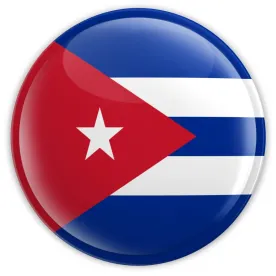The Federal Communications Commission recently removed Cuba from its "Exclusion List," allowing telecommunications companies to offer telephone and internet services between the United States and Cuba without separate approval from the agency. Cuba had been on the Exclusion List since the list was adopted in 1996, and was the only nation remaining on the list.
The FCC’s order, which was issued on Jan. 15, 2016, significantly lowers the regulatory hurdles carriers must clear to offer telecom services between the United States and Cuba. Prior to the order, only a few companies (including Sprint and IDT Domestic Telecom, Inc.) had received approval to provide telecom services between the United States and Cuba.
Now, not only will carriers seeking new approval from the FCC to provide services to Cuba receive such authority much sooner, but carriers with existing global approval may now provide services to Cuba without additional authorization from the FCC.
The FCC’s order is an important milestone in the ongoing process of improving U.S. relations with Cuba. Since 1960, the U.S. government has imposed an embargo on Cuba, placing a series of restrictions on trade including prohibitions on importing and exporting goods or services to and from Cuba or participating in transactions in which the Cuban government or any Cuban national has an interest. The Cuban embargo remains in place, and the U.S. government continues to enforce prohibitions on most transactions between the U.S. and Cuba.
Since 2009, however, and particularly since the Obama administration’s December 2014 announcement that it would reopen diplomatic relations with Cuba, several sectors, including travel, telecommunications, and financial services, have benefited from a liberalization of the regulatory regime. The Commerce Department’s Bureau of Industry and Security (BIS), for example, now authorizes limited categories of items to be exported to Cuba. Among these categories are items intended to improve the free flow of information to, from, and among the Cuban people, such as consumer communication devices and telecommunications infrastructure equipment.
The Office of Foreign Assets Control (OFAC), meanwhile, has issued general licenses authorizing transactions, including payments, incident to authorized purposes such as the provision of telecommunications services in Cuba. OFAC general licenses also authorize travel to Cuba and associated activities that are directly incidental to the conducting of market research, commercial marketing, sales negotiation, accompanied delivery, or servicing in Cuba of items consistent with the U.S. government’s export licensing policy, though the traveler must maintain a full-time schedule of business activities.
The FCC’s order is thus the latest in a series of steps taken under the Obama administration to facilitate telecommunications services between the United States and Cuba. Much work remains to be done to build trust between U.S. carriers and the Cuban government, though there is a certain amount of urgency to make progress under comparatively favorable regulatory conditions before President Obama’s successor is elected. By clearing regulatory obstructions for carriers seeking to offer services to Cuba, the FCC’s order opens a window of access to a new market for U.S. telecom service providers.







 />i
/>i
